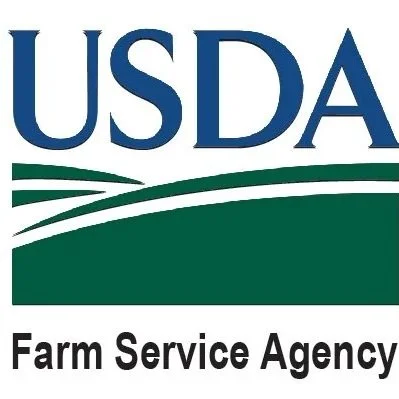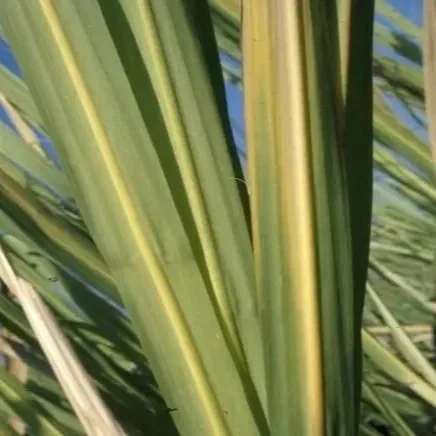Manulife Investment Management (Manulife IM), a company of Manulife Wealth & Asset Management, announced today the closing of a Louisiana timberland transaction on behalf of a client. Under the terms of the agreement, Manulife IM, the world's largest timberland investment manager,1 acquired approximately 50,000 pine timberland acres in southwestern Louisiana, expanding acreage under management in Arkansas/Louisiana/Texas/Oklahoma to over one million acres. The timberlands are near existing Manulife IM managed timberland assets and are well placed to be incorporated into ongoing regional operations.
Read MoreAfter a 10-day delay, inshore shrimp season opened Monday. Louisiana Shrimp Association President Acy Cooper says the later start to the season is actually a very good thing.
“They wanted to open August 1, and everybody was pretty much against it because we still had a lot of small shrimp. So they wanted to leave it closed for a couple more weeks to see if we could get a little bit bigger size,” Cooper said.
Read MoreMyth: I am too old to be considered a beginning farmer or rancher. False—In fact, there is no age limit or age requirement to be considered a beginning farmer!
• According to the 2022 Census of Agriculture, 61% of beginning farmers and ranchers are between the ages of 35 – 64 with an average age of 47.
Read MoreThe American Relief Act, 2025, provides disaster relief payments to producers who suffered revenue, quality or production losses to crops, trees, bushes, or vines due to qualifying disaster events in calendar years 2023 and 2024.
The Supplemental Disaster Relief Program (SDRP) will be administered in two stages. Producers can receive payments in both stages, if applicable, and for one or both years, depending on losses.
Read MoreAfter several seasons of perennial grasses popping up in fields and evading herbicide efficacy, Louisiana farmers and researchers are becoming concerned about future control of weeds in rice.
At the H. Rouse Caffey Rice Research Station in Crowley, Connor Webster, weed specialist for rice at Louisiana State University, said many trials have been conducted on perennial grass and sedge species with little to no response to commonly used herbicides, which is a red flag for resistance.
Read MoreOkra holds a special place in the hearts of many Louisianans. For some, it’s an essential ingredient in gumbo, and for others, it’s a must-grow crop in the summer vegetable garden.
It’s no wonder why: Okra is tasty and nutritious. It’s easy to grow and prolific, even in intense heat.
Read MoreThank you to our CPL members who have renewed their membership in July. For those who have not, please do so by the end of August. Let me know if you need a form. Again, THANK YOU!
The month of July saw new record prices for slaughter steers and heifers coming out of the feedlots and slaughter cow prices.
Read MoreWith the majority of farm bill provisions included in the “One Big Beautiful Bill” passed by Congress and signed into law by President Donald Trump on July 4, all that remains now is “Farm Bill 2.0,” which House Agriculture Committee Chairman Glenn “G.T” Thompson calls “not too controversial” and should pass with bipartisan support.
Read MoreLast week, U.S. Secretary of Agriculture Brooke Rollins launched the inaugural Great American Farmers Market here on the National Mall, just in front of U.S. Department of Agriculture (USDA) headquarters.
The market ran for several hours daily, from Sunday, August 3, through Friday, August 9, and each day was themed and featured special events in addition to the daily vendors from throughout the U.S. selling agricultural products. Themes included America Grows, MAHA Monday, Faith & Fellowship, Forests & Firefighters, America the Beautiful, and Farmer First Friday.
Read MoreAs we move into August we expect to see looper numbers increase in soybeans. These insects do not feed on pods, but cause injury by defoliating the plants, so relatively high numbers of loopers can be tolerated compared with pod-feeding insects. Treatment is recommended between R1 to R6 when defoliation reaches 20% or when looper numbers reach 19 per 25 sweeps. It is often suggested to ignore smaller worms (<1/2 inch) in counts because many will be culled by predators and entomopathogens.
Read MoreYellow leaf disease was first reported in the Louisiana sugar industry in the late 1990s. It is caused by the sugarcane yellow leaf virus, which is transmitted by the sugarcane aphid (Melanaphis sacchari). Since then, the incidence of yellow leaf disease has remained low, primarily because of Louisiana’s healthy seedcane program.
Read MoreAs Louisiana approaches 811 Day on Aug. 11, it’s a timely reminder to always call 811 before you dig.
Read MoreLouisiana shrimpers say there’s a long list of reasons why the state’s shrimping industry has been drying up in recent decades. Atop that list is the mountain of shrimp being imported from outside the United States. It’s why Pelas and other local shrimpers are applauding President Trump’s 25 percent tariff on goods from India, including its cheaper, farm-raised shrimp, which Pelas says kills competition by dragging down overall shrimp prices.
Read MoreAfter decades of farming, the Fruge family transforms Louisiana rice into nationally awarded spirits, with their eyes set on becoming a household name.
Read MoreThe LSU AgCenter will offer a Grazing School focused on forage production this fall in Jeanerette.
The school will take place over five sessions, providing information and hands-on experience related to a variety of topics associated with growing forages for livestock operations.
Read More














